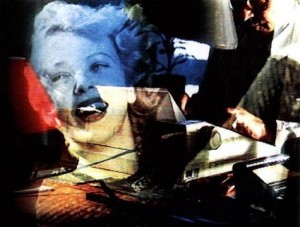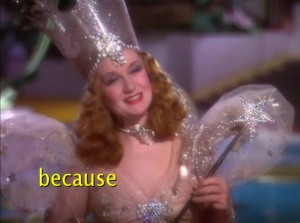From Film Comment (September-October 1998). This is a restructured and substantially revised, updated, and otherwise altered version of my “Trailer for Histoire(s) du cinéma,” which appeared originally in French in the Spring 1997 issue of Trafic. Among the more important changes are a suppression of virtually all of my multiple comparisons of Histoire(s) du cinéma with Finnegans Wake in the original (which, paradoxically, seemed more appropriate in a French publication than in an American one), an expansion of much of the interview material, and an extended quotation from Godard’s review of Rob Tregenza’s Talking to Strangers.
My apologies for some format irregularities that I wasn’t able to fix. -– J.R.

GODARD AS CRITIC
JLG (at press conference): I still look at movies the same way today than I did [at the time of the New Wave], but I know it’s not the same world, exactly. Even if we enter the theater the same way, we don’t go out the same way.
Q: How is it different? Read more
From Film Comment (September-October 1998). This is a restructured and substantially revised, updated, and otherwise altered version of my “Trailer for Histoire(s) du cinéma,” which appeared originally in French in the Spring 1997 issue of Trafic. Among the more important changes are a suppression of virtually all of my multiple comparisons of Histoire(s) du cinéma with Finnegans Wake in the original (which, paradoxically, seemed more appropriate in a French publication than in an American one), an expansion of much of the interview material, and an extended quotation from Godard’s review of Rob Tregenza’s Talking to Strangers.
My apologies for some format irregularities that I wasn’t able to fix. -– J.R.


Part of the following derives from two film festival encounters — a panel discussion on Godard’s Histoire(s) du cinéma held in Locarno in August 1995, and some time spent with Godard in Toronto in September 1996. I participated in the first event after having seen the first four chapters of Godard’s eight-part video series; unlike my co-panelists, I’d been unable to accept Godard’s invitation to view chapters 3a and 3b, devoted to Italian neorealism and the New Wave, in Rolle a few days earlier. Read more
Written for Whose Cinema?, a Critics’ Choice Slow Criticism Project booklet published at the Rotterdam International Film Festival, January 27 — February 7, 2016, and in the February 2016 issue of the online Filmkrant. — J.R.



“Back then [in Hungary in the late 1970s], it was the censorship of the politics, and now we have the censorship of the market. What has changed? The climate is the same. If you are a filmmaker, it is always fucked up.”
–Béla Tarr at the Walker Art Center (Minneapolis), 2012
“Piracy isn’t a victimless crime,” is what we read at the beginnings of an inordinate number of DVDs and Blu-Rays — to which I’m often tempted to reply that capitalism isn’t always or invariably a victimless crime either, especially when the victim turns out to be the consumer. And the fact that piracy is usually regarded as a crime and capitalism usually isn’t should mark the beginning of any clear-headed discussion of who (or what) cinema should belong to.
If “Whose cinema?” is a question that needs to be answered, we first have to add another question, and an even thornier one — “What cinema (or whose cinema) are we talking about?” Read more






